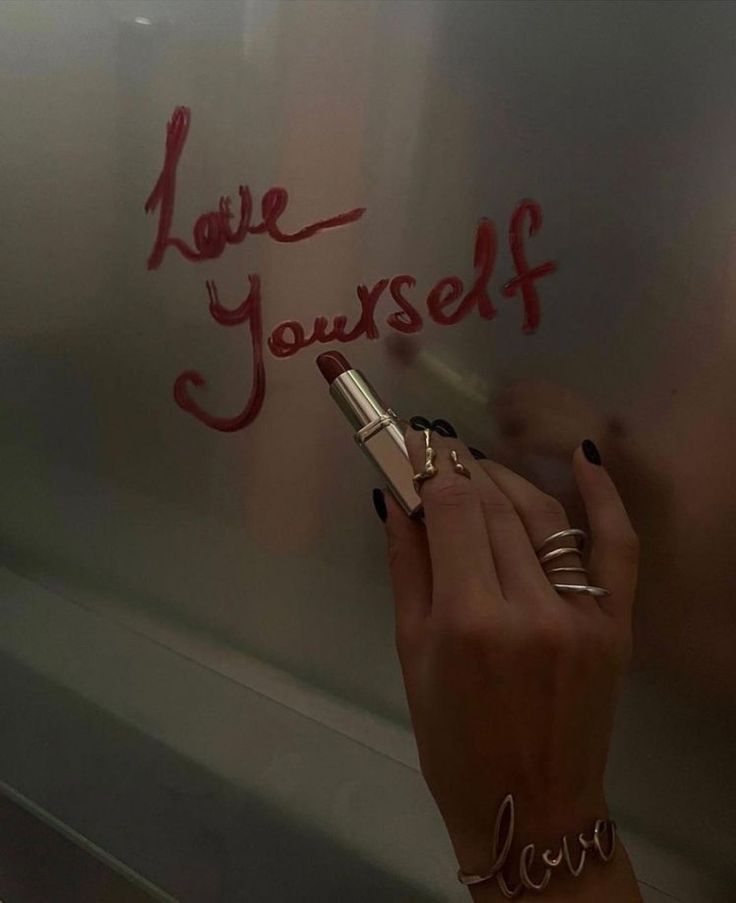As a specialist in relationships and human behavior, I’ve had the privilege of working with individuals and couples across different stages of their lives. One theme that consistently arises in discussions about relationship struggles, dissatisfaction, and personal growth is the concept of self-love. This is not just a buzzword or a fleeting trend in the world of self-help; it is a foundational aspect of building and maintaining healthy, fulfilling relationships. In this blog, I will dive deep into why self-love is crucial for nurturing healthy relationships, how it impacts the way we interact with others, and practical ways to cultivate self-love in your life.
What is Self-Love?
Self-love refers to the regard and respect that you have for yourself. It is about accepting yourself as you are, embracing your strengths and weaknesses, and maintaining a healthy sense of self-worth. Self-love is often confused with narcissism or selfishness, but it is fundamentally different. Self-love involves recognizing your own value, setting boundaries, and taking care of your emotional, mental, and physical well-being.
At its core, self-love means that you acknowledge your needs, prioritize your happiness, and engage in actions that align with your inner values. When you love and respect yourself, you are more likely to build relationships with others that reflect those same qualities—ones that are healthy, supportive, and mutually beneficial.
Why is Self-Love Important in Healthy Relationships?
When we think about healthy relationships, we often focus on the dynamics between two people—communication, trust, support, and love. However, the key to a truly healthy relationship often lies within the individual. How you feel about yourself plays a significant role in how you interact with others. The more you love and accept yourself, the more you can give and receive love in a healthy way. Here are several reasons why self-love is essential for healthy relationships:

1. Self-Love Fosters Healthy Boundaries
One of the first steps in cultivating healthy relationships is establishing clear boundaries. Boundaries are the invisible lines we draw that define what we are and aren’t willing to accept from others. When we lack self-love, we may allow others to cross our boundaries, or worse, we may not even recognize when they’re being violated. People who struggle with self-worth often struggle with saying no, setting limits, or advocating for their needs in relationships.
Self-love helps you recognize your worth and teaches you that you deserve respect and consideration. When you have a strong sense of self-love, you are more likely to set healthy boundaries with others and protect your emotional, mental, and physical well-being. This creates a space where both partners feel safe, respected, and valued.
2. Self-Love Promotes Healthy Communication
Communication is the cornerstone of any healthy relationship. It involves being able to express your feelings, needs, and desires openly and honestly. When you don’t love yourself, you may find it difficult to communicate effectively in relationships. You may suppress your feelings, fear rejection, or struggle with asserting yourself. This can lead to misunderstandings, resentment, and emotional distance.
On the other hand, self-love allows you to communicate from a place of confidence and clarity. When you value yourself, you are more likely to speak up when something is bothering you, express your needs without guilt, and listen to your partner with empathy and understanding. Healthy communication is crucial for resolving conflicts, preventing misunderstandings, and deepening emotional intimacy in a relationship.
3. Self-Love Prevents Codependency
Codependency is a dysfunctional relationship dynamic where one person excessively relies on the other for validation, self-worth, and emotional support. People who struggle with self-love often fall into codependent relationships because they seek external validation to feel whole. This creates an unhealthy power dynamic, where one person becomes overly responsible for the other’s happiness, while the other feels constantly drained or burdened.
In a healthy relationship, both partners are able to maintain their individuality while also supporting one another. Self-love helps you build emotional resilience and self-sufficiency, preventing codependency. When you love yourself, you are less likely to place the burden of your happiness on your partner. Instead, you can both show up in the relationship as whole individuals who bring value to each other’s lives.
4. Self-Love Enhances Emotional Resilience
Relationships naturally come with ups and downs—arguments, disagreements, miscommunications, and moments of tension. If you don’t have self-love, these challenges can feel like threats to your sense of self. You may take things personally, internalize conflicts, or have difficulty bouncing back from emotional setbacks.
However, when you cultivate self-love, you develop emotional resilience. You understand that conflicts or setbacks don’t define you or your worth. You are able to approach relationship challenges with a balanced perspective, without letting your self-esteem be shaken by temporary issues. Self-love allows you to stay grounded, process emotions constructively, and maintain a sense of security within yourself, even in difficult times.
5. Self-Love Creates Space for Authentic Connection
At the heart of every healthy relationship is authentic connection. In order to connect with others on a deep level, you must first connect with yourself. If you are not comfortable with who you are or if you don’t fully accept yourself, it can be challenging to allow someone else to truly see you. Self-love helps you embrace your true self, flaws and all, so that you can show up authentically in your relationships.
When you are authentic, you create an environment where your partner feels safe to be authentic as well. This leads to greater emotional intimacy, trust, and a deeper bond. The more you love and accept yourself, the more you can allow your partner to do the same. This creates a relationship built on mutual respect and understanding, where both individuals feel comfortable being their true selves.
6. Self-Love Prevents Emotional Dependence
Emotional dependence is another issue that can arise when self-love is lacking. In relationships where emotional dependence exists, one partner relies on the other for constant reassurance, validation, and emotional support. This can create an imbalance, where one person becomes emotionally drained, while the other feels unfulfilled.
With self-love, you are less likely to rely on your partner to fill emotional gaps or validate your worth. You are able to cultivate your own self-esteem and well-being, which allows you to approach your relationship from a place of balance. You can offer your partner support and love, but you also have the emotional independence to take care of your own needs.
How to Cultivate Self-Love in Relationships
While self-love is something that starts within, it can also be nurtured and strengthened within the context of a relationship. Here are some practical ways to cultivate self-love while building a healthy relationship:
1. Practice Self-Care
Self-care is one of the most important ways to nurture self-love. Taking time for yourself to relax, engage in hobbies like yoga & dance, and prioritize your mental and physical well-being sends a message that you are worthy of care and attention. When you make self-care a priority, you can show up as your best self in your relationship.
2. Affirm Your Worth
It’s easy to forget how valuable you are, especially during difficult times. One powerful way to foster self-love is by practicing positive affirmations. Speak kindly to yourself, remind yourself of your strengths, and celebrate your accomplishments. By affirming your worth, you reinforce the belief that you are deserving of love and respect in your relationship.
3. Prioritize Personal Growth
Self-love involves an ongoing commitment to personal growth. This means taking the time to explore your own desires, passions, and goals. When you are in a relationship, it’s important to continue nurturing your own growth, independent of your partner. This could involve pursuing career goals, engaging in hobbies, or working on emotional healing. The more you invest in your own personal development, the more you can contribute to a healthy, evolving relationship.
4. Practice Mindful Communication
Effective communication is key to maintaining a healthy relationship. Practice speaking your truth with love and respect. Share your thoughts and feelings openly, and also make an effort to listen actively to your partner. Mindful communication helps foster understanding, strengthen emotional connections, and ensure that both partners feel heard and valued.
5. Set Healthy Boundaries
Setting boundaries is a powerful form of self-love. By establishing clear boundaries in your relationship, you communicate your needs, preferences, and limits with your partner. Healthy boundaries create mutual respect and prevent resentment. It’s essential to remember that setting boundaries is not a sign of selfishness; it’s a sign of self-respect.
6. Embrace Vulnerability
Being vulnerable is often seen as a sign of weakness, but in reality, it is a courageous act of self-love. When you allow yourself to be vulnerable in a relationship, you open the door to deeper connection and emotional intimacy. Sharing your fears, hopes, and desires creates a safe space for your partner to do the same. Vulnerability is an essential aspect of building trust and emotional closeness.
Conclusion
In summary, self-love is not only crucial for personal well-being but also for the health and longevity of any relationship. The stronger your self-love, the more equipped you are to build a relationship that is rooted in respect, trust, and mutual growth. By fostering self-love, you set the foundation for healthy boundaries, effective communication, emotional resilience, and genuine connection. Remember, a healthy relationship starts with a healthy relationship with yourself. When you love yourself fully, you create the space for love to flourish in all areas of your life.


Leave a Reply